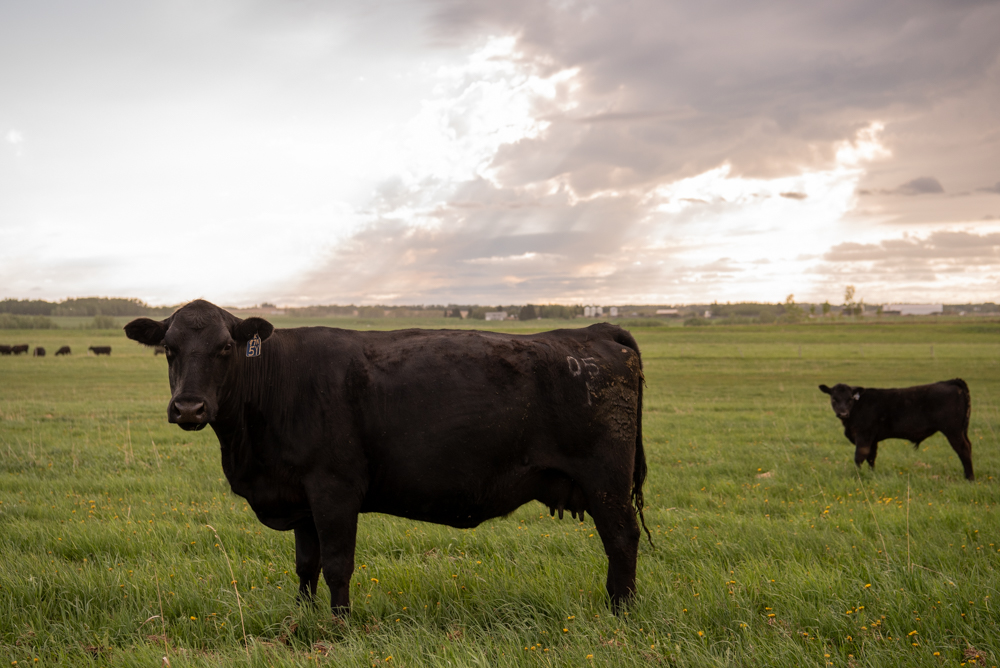
At the Table
The code
by Nicole Erceg
May 20, 2020
Have you ever walked into a building and wondered about the engineer? Who verified that each beam sits right where it’s supposed to? Was he the details type of guy that checked everything to be sure gravity or a strong storm won’t harm those inside? Maybe he was a hasty type with a small budget who didn’t give any thought to how the handrail choice might one day lead to a terrible fall.
I never considered such things until I befriended an architect student in college. He enjoyed pointing out weak links, flaws and poor design choices that made me suddenly fear for my safety.
Many of our beef consumers are having the same experience. Never having considered where food comes from or walked up on an empty meat case, they didn’t imagine what services a packing plant provides. Now they have a different perspective, and it’s not a positive one.
It’s no sin to give little thought to what went into a product before buying. We’re usually focused on the product, the experience, our needs—not those who made it possible.
Until something signals that we should question it.
Those questions, increasingly pressed on agriculture in recent years, are now louder as media scrutiny during COVID-19 spotlights fragility in the meat industry. Whatever trust was built into the system behind beef has been severely strained.
Decades of quality beef at consumers’ fingertips should count for something, right? It does. There’s still comfort in a family pot-roast dinner, the simple convenience and versatility of ground beef and holidays celebrated around what comes off the grill.
The relationship, the memories, the flavor are bonds yet unsevered, though fraying with guilt for too many of our customers. There’s fear that the joy of beef might come at a cost they don’t want to pay.

Ranchers have done their part, gone the extra mile. Making sure calves have a solid vaccine program to keep them healthy down the line. Investing in better genetics to add value from the ranch to the end user. Add the bells and whistles—if it’s what consumers want, it will pay off in the long run.
It has; beef consumption and demand have grown. But if you’re staring at red ink on a balance sheet today, it sure doesn’t feel like it.
There’s folks who say cattle bred for premium quality won’t be important moving forward. I agree. They’ll be absolutely vital.
Our consumers need assurance in their food supply. The media narrative highlighting weak links in our meat supply chain is equivalent to at least 20 Super Bowl ads.
No single PR campaign can erase the damage done.
Safety, wholesomeness, proof of care, a promise of quality, a guarantee of our commitment to our people—those are keys to guilt-free beef. Consumers won’t take our word for it—we have to show the work. We’ll also have to show our hearts.
These things can feel overwhelming, impossible, or simply outrageous when we’re still riding out this storm. But like compound interest, small investments over time grow into powerful assets.
Meaningful change isn’t accomplished overnight. More often, it happens slowly by chipping away piece by piece until something new suddenly takes shape.
Overcoming the consumer trust challenge seems wholly insurmountable until I think of thousands of cattlemen making small improvements, one day at a time.
I’m not afraid any buildings are going to fall on me because we have building codes. There are people who enforce safety measures; there are certificates that prove someone else did their job. However, I don’t appreciate structures like I crave a medium-rare New York strip. Food is more personal.
When I think about the thing that sparked my own faith in agriculture, a commitment to this career and this life, it was a kind of code. A pledge to always make the best better.
You may also like
Apply by April 1 for Colvin Scholarship
The production agriculture, undergraduate and graduate scholarship categories each have tailored requirements. In 2025, the Colvin Scholarship Fund supported 27 students with awards ranging from $2,000 to $7,500.
Working in Balance
Cattlemen have a responsibility to look critically at their own herd, determine the areas that warrant improvement, and select animals accordingly. Stockmen bring immense value by objectively evaluating phenotypes, regardless of what the numbers say, and setting individual breeding objectives.
Healthier Soils and Stronger Herds
Effective land stewardship requires an understanding of how each decision affects forage growth, cattle performance and long-term stocking rates. When land is the foundation of the business, producers are more likely to invest time and resources into managing it intentionally.
